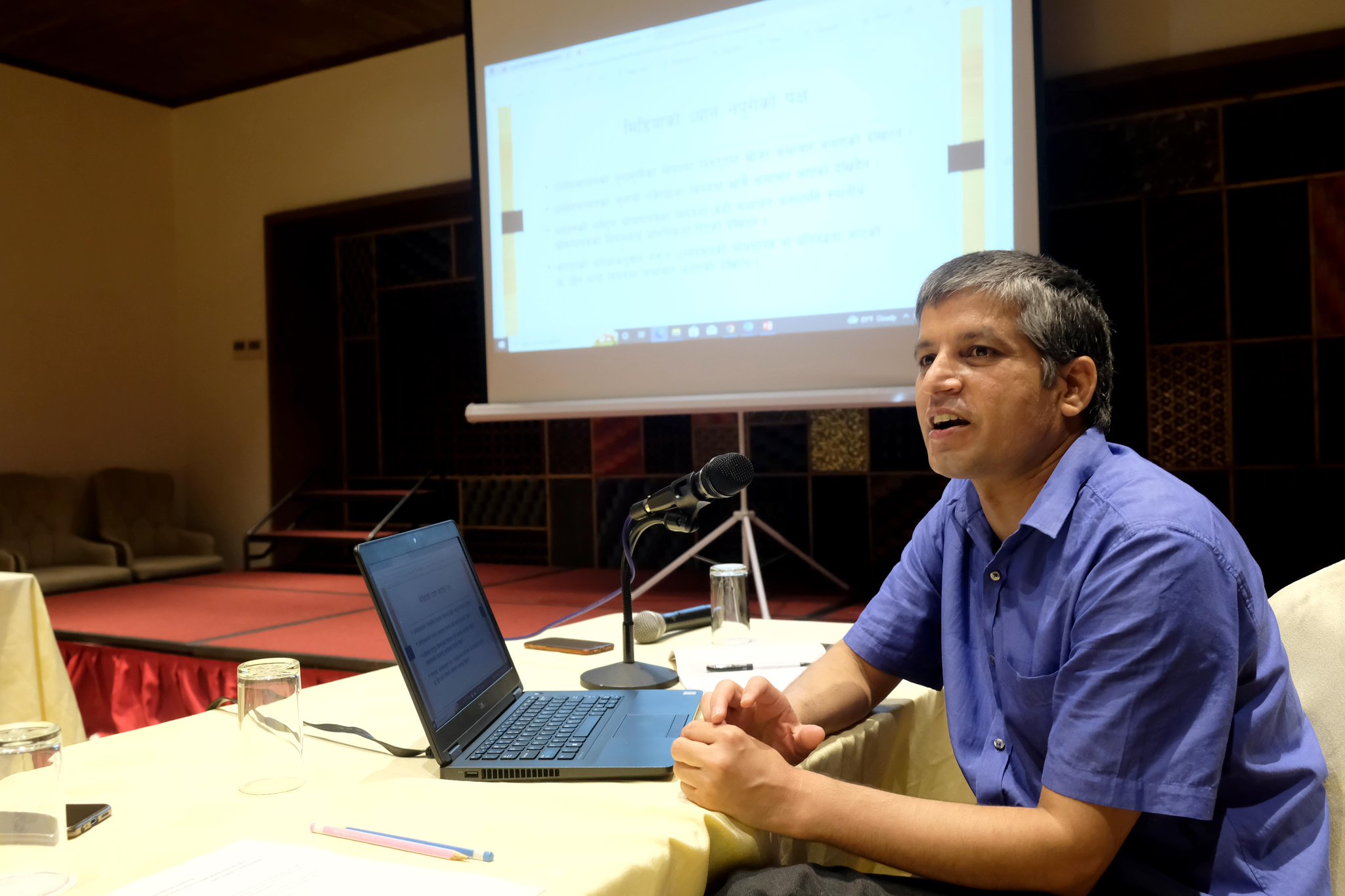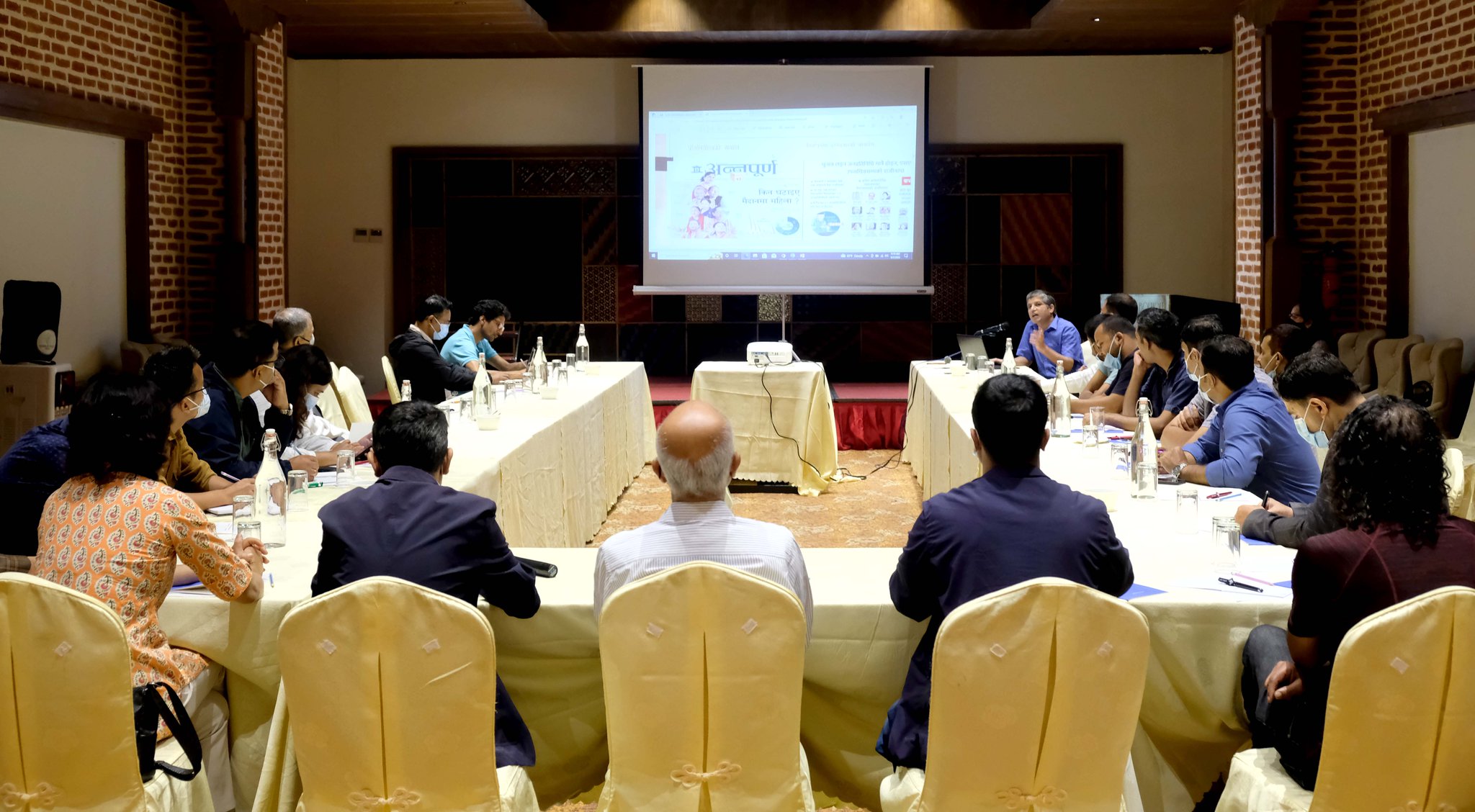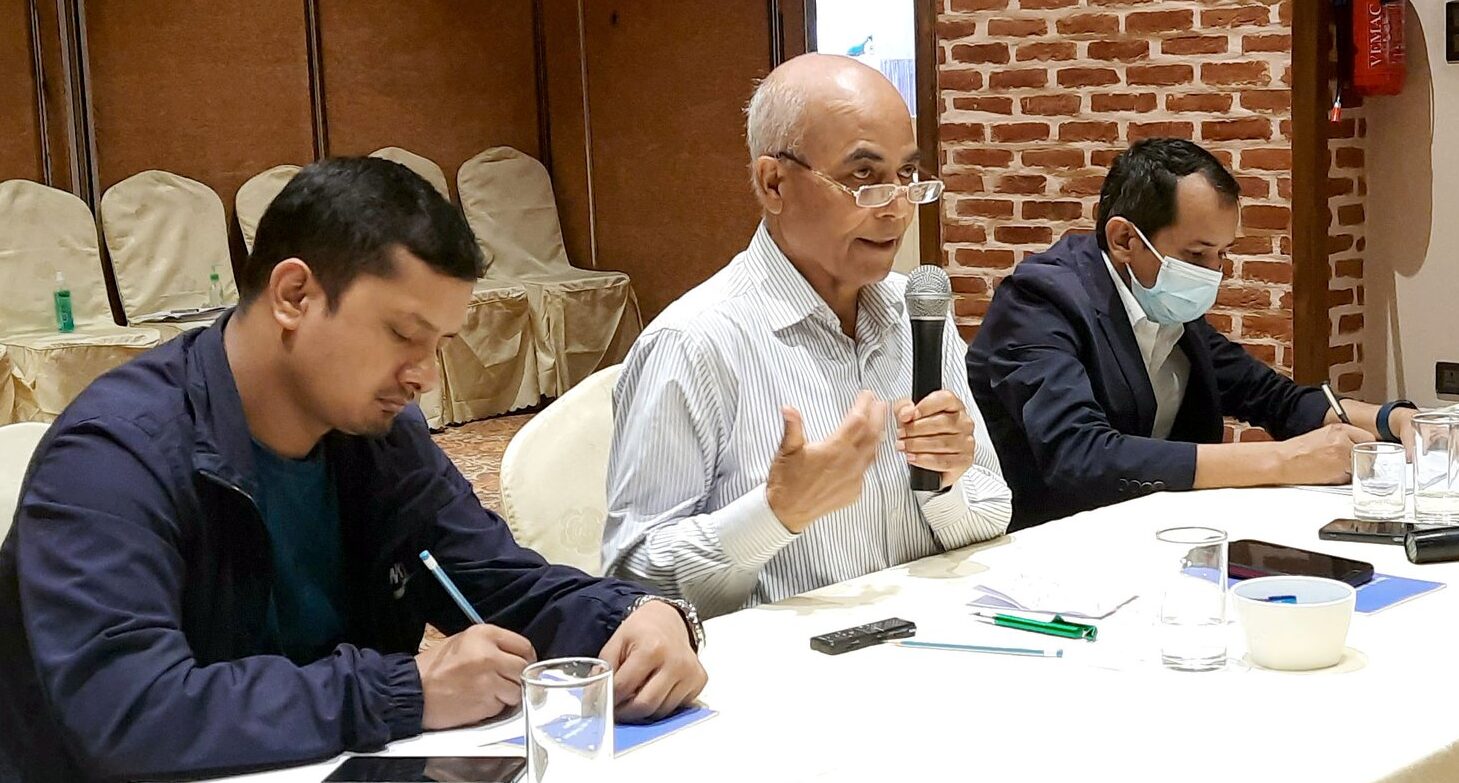Former Chief Election Commissioner, Bhojraj Pokharel emphasized on the need to fix the dates of the federal, province and local level elections in the law.
“If the date of the election is fixed in the law, it will be easier for the candidates to be selected early and for the Election Commission to prepare,” he said speaking at discussion program organized by the Center for Media Research-Nepal to present the monitoring reports of the local elections 2022.
Pokharel highlighted the necessity to fix the election date; the announcement of elections results to difficulties for the parties to fix their candidates and pressures the Election Commission for preparation.
Pokharel also pointed out the tendency of ignoring the code of conduct and ceiling of the election expenses while more budget is spent on the security than on election management. Therefore, it was necessary for the political parties to be accountable. Mentioning that code of conduct and fines are different things; he said that a separate court could be formed to look at the punishment and fines for the election-related crimes.

Presenting a media monitoring report during local election, researcher Tilak Pathak said that media prioritized issues were alliance and problems between the political parties, selection of candidates, representation of women candidates, violation of the code of conduct, expectations of the people at the local level, expenses and violence incurred in the election, and the delays in the counting of votes.
He criticized the role of media of paying less attention to bring out the background of the candidates; brining into understanding the agenda of election manifestos in relation to people’s expectations, and election expenses.

Ishwari Bhattarai, a political analyst at the Democracy Research Center Nepal, presented observation report of local elections 2022. He informed that there were problems in the local level elections in terms of staff mobilization, voter ID cards, compliance with the code of conduct, voter education, voter confidentiality, polling stations, and election expenses. He said that there are challenges in the implementation of rules related to election supervision, non-uniformity, setting the number for supervision, and not allowing the supervisor to supervise many polling stations.
The program was participated by representatives from Election Observer groups, CSO activists, and journalists.
